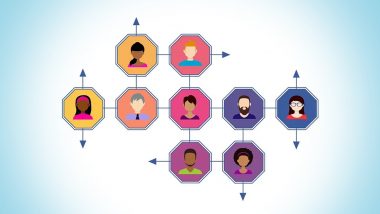Protests over the contentious Citizenship Amendment Act 2019 (CAA) are spreading across India, seeking abolition of the law. The Act entitles Hindus, Sikhs, Parsis, Buddhists, Jains and Christians facing religious persecution in Pakistan, Afghanistan and Bangladesh to seek Indian citizenship, leaving out Muslims. As agitation gains momentum, the Indian government is taking drastic measures to curb dissenting voices. Protesters are dealing with curfew, firing and tear gas. Police crackdown has so far left more than half a dozen people dead in the northeast. Shortly, an internet shutdown was announced to further stop the exchange of messages and prevent mobilisation of protesters. Is internet ban a new weapon to crush dissent in 'new India'? The outage of the internet is not confined to Kashmir any more, where life without the Internet seems to be a 'new normal' (more than four months and still counting). The year 2019 alone saw 94 disruptions across 14 states in India. Citizenship Act 1955 - Citizenship Amendment Act 2019 Full Text: Know Two Laws About Indian Citizenship.
According to internetshutdowns.in, India witnessed six internet shutdowns in 2014. The number rose to 14 in 2015, in 2016, it was 31, and in 2017, it reached 79. The number peaked to 134 in 2018, and by December 19, 2019, there have been 94 Internet shutdowns with New Delhi being the latest addition.
Major Events in 2019
Jammu and Kashmir: On August 5, the state was stripped of its special status granted under Article 370 of the Constitution. Internet was banned, and ever since, the ban has not been lifted. This is the longest ever continuation of internet shutdown in the history of any country. In the past as well, Jammu and Kashmir faced a 133-day internet shutdown, between July 8 and November 19, 2016. It is also important to take a note here that erstwhile, the state has seen 180 internet shutdowns since 2012. Machine Generated SMS Services Resume for Postpaid Mobiles in Jammu and Kashmir, Internet Still Shut.
Rajasthan: The state has faced many shutdowns in recent years to prevent ‘communal violence.’ Since 2015, the state has had 67 shutdowns from interior parts to those extending to entire districts. Ahead of the Supreme Court's verdict in the Ayodhya case on November 9, Jaipur and Bharatpur saw internet suspension, initially for 24 hours. However, the suspension was reportedly extended for a few more days. In Jaipur, the suspension continued until November 11, 2019.
Uttar Pradesh: In July this year, internet services were suspended for defusing the tension prevailing due to protests by Muslims against the lynching of a man. On the day of the Ayodhya verdict as well, internet services were taken down in parts of UP. Notably, the suspension was ordered and put into effect starting midnight of November 8, 2019. The next day, the Supreme Court passed its judgement. The shutdown was preemptive in anticipation of violence. What Fundamental Rights Article 14, 15 Guarantee And Arguments in Favour of & Against CAB.
Citizenship Amendment Act: With the ongoing protests against CAA, New Delhi becomes the latest addition facing a ban on internet services. So far, internet services are suspended in ITO, northeast Delhi and central Delhi. In a respond to the query of an Airtel user in Delhi, the network company confirmed that it has received orders from the government to take down internet and SMS services. Airtel Confirms Suspension on Govt Orders Amid CAA Protests.
There have been shutdowns in the northeast India at the beginning of the year as well, when the announcement of CAB triggered unrest. The ban on internet returned to the northeast when the government tabled the CAB in Parliament in early December. Arunachal Pradesh and Tripura were among the first northeastern states where internet services were suspended a day after Lok Sabha passed the Bill. In Assam, services were suspended on December 11, when Rajya Sabha cleared the legislation. The suspension continued until December 17 early morning, when broadband services were finally resumed. But mobile internet continues to remain banned. Twitterati Divided Over CAA Amid State Curfews and Internet Banning.
Amid the ongoing protests against the CAA, the internet was suspended in West Bengal too. On December 15, services were reportedly stopped in North Dinajpur, Malda, Murshidabad, Howrah, North 24-Parganas and parts of South 24-Parganas districts. Ahead of the planned protest by Aligarh Muslim University students on December 15, 2019, the government resorted to internet ban again. Internet was taken down in Aligarh, Meerut and Saharanpur.
A total of 14 states faced internet banning, including Maharashtra, Odisha, Tripura, and Haryana, among other states for various reasons this year. The internet shutdown does not seem to be a short-term fix. The ban has continued longer than it was meant to. Jammu and Kashmir is the latest example. When asked, the government claims that it uses the internet blackouts to maintain law and order and also curb the spread of fake news.
The argument is partially legit as rumours and fake news on social media have led to lynching incidents. But the internet is the new voice for the citizens of any country. Banning the services amid raging concerns is not a solution. The other parts of the country remain unaware of what actually might be happening in its neighbouring states.
According to the United Nations, internet access is a basic human right. Shutting it down is shutting the voice of people. If you see the above example, the internet has been suspended each time when the government knew it was going to face a backlash. Considering concerns over CAA, internet shutdown is again being used as a tool to crackdown on dissent in the country.
(The opinions expressed in the above article are of the author and do not reflect the stand or position of LatestLY.)
(The above story first appeared on LatestLY on Dec 19, 2019 12:41 PM IST. For more news and updates on politics, world, sports, entertainment and lifestyle, log on to our website latestly.com).













 Quickly
Quickly


